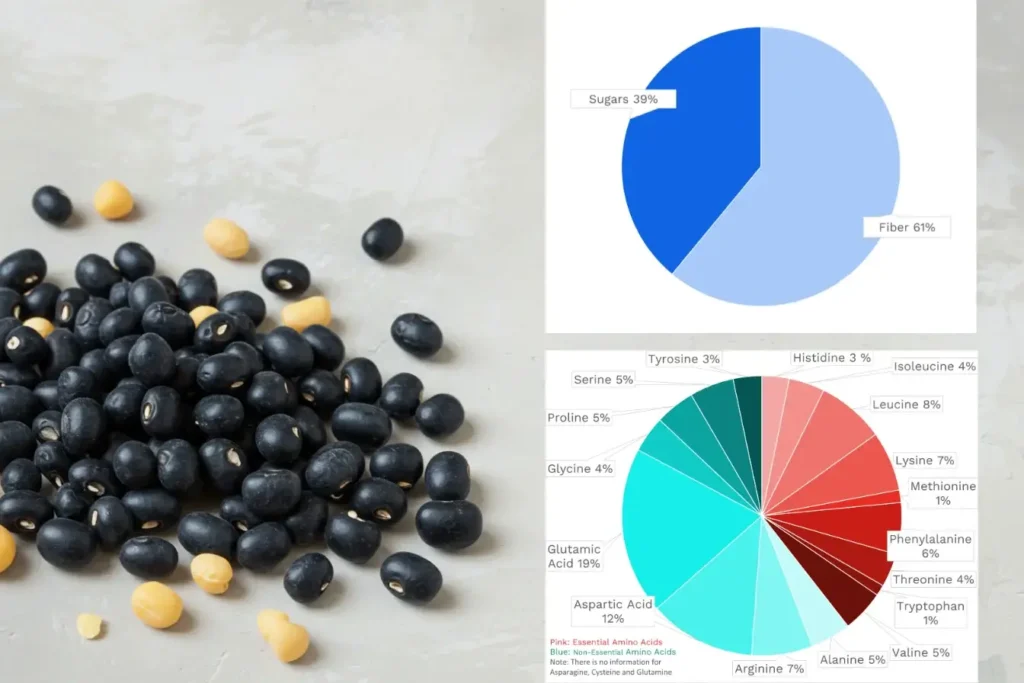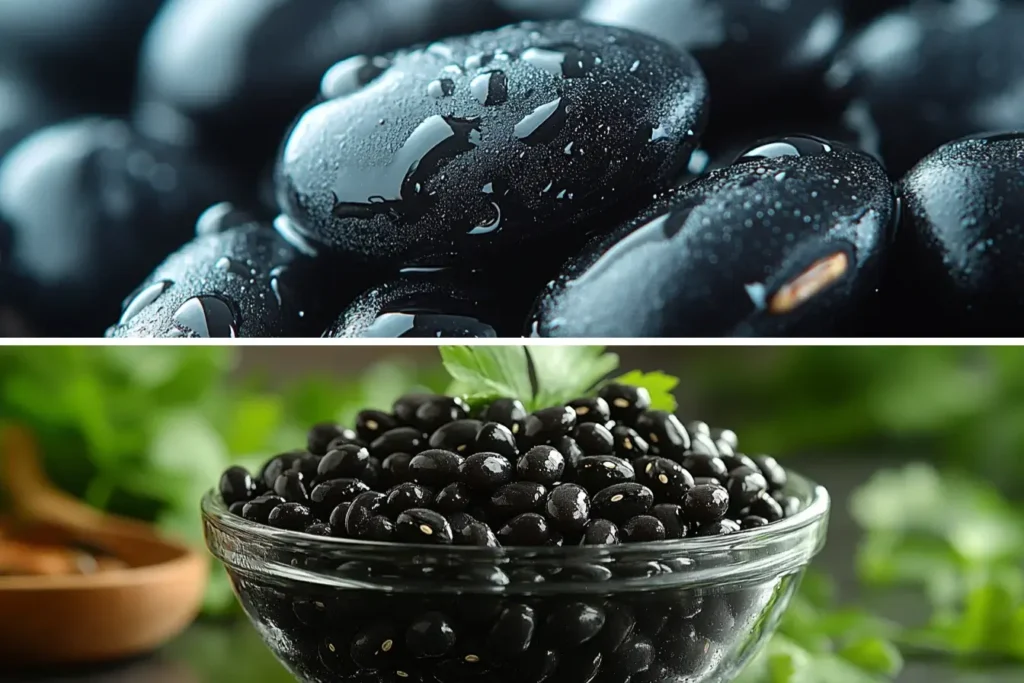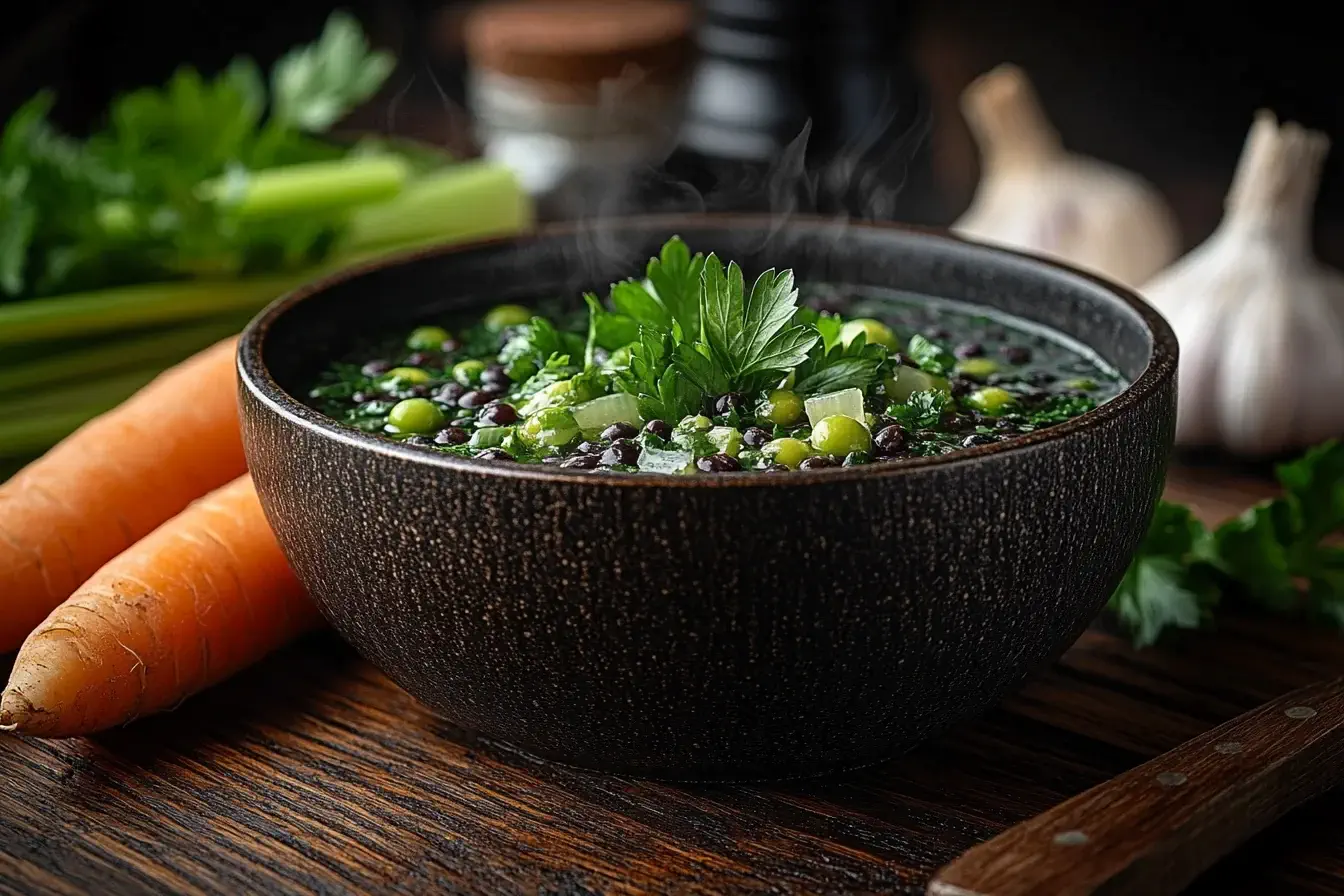Black peas soup isn’t just a comforting dish; it’s a nutritional powerhouse packed with fiber, protein, and essential vitamins. This article dives into the impressive benefits of black peas soup, from supporting digestive health to bolstering immunity and aiding weight management. Whether you’re looking to improve heart health or explore versatile meal options, black peas soup offers a wholesome solution. Let’s explore the key reasons why this hearty soup should make its way to your table.
Nutritional Profile of Black Peas Soup

Overview of Black Peas Nutrition
Black peas, also known as black-eyed peas, are a nutrient-rich legume celebrated for their diverse health benefits. But what are the benefits of black peas soup? These small but mighty peas are brimming with dietary fiber, plant-based protein, and a host of vitamins like folate, vitamin A, and essential minerals such as potassium and magnesium.
Each serving of black peas soup delivers:
- A generous dose of soluble fiber to aid digestion and heart health.
- A high-quality protein source for muscle repair and overall growth.
- Micronutrients like iron and zinc, which play a critical role in immune function and energy production.
Moreover, black peas have a low glycemic index, making them an excellent choice for stabilizing blood sugar levels. This makes the soup particularly beneficial for individuals managing diabetes or seeking to avoid energy spikes and crashes.
Comparison with Other Legumes
While all legumes have their perks, black peas hold a unique edge. Unlike chickpeas or lentils, black peas are lower in calories and boast a higher fiber-to-calorie ratio, meaning you can enjoy a more satisfying meal with fewer calories. Plus, their distinct nutty flavor pairs beautifully with a variety of spices, making them incredibly versatile in soups and stews.
In comparison to red beans or kidney beans, black peas also stand out for their rich folate content, which is crucial for cell regeneration and overall brain health. A single serving can cover nearly 20% of your daily folate needs—a compelling reason to add this legume to your diet!
Digestive Health Benefits of Black Peas Soup

High Fiber Content and Digestive Regulation
One of the most significant benefits of this hearty legume-based dish lies in its high fiber content. A single serving delivers a mix of soluble and insoluble fiber, essential for maintaining a well-functioning digestive system. Soluble fiber absorbs water to form a gel-like substance that slows digestion, ensuring nutrients are effectively absorbed. Meanwhile, insoluble fiber keeps digestion moving smoothly, reducing the risk of constipation.
The combination of soluble and insoluble fiber in this dish not only promotes bowel regularity but also supports the growth of healthy gut bacteria. By fostering a balanced gut microbiome, it can alleviate bloating, improve nutrient absorption, and even reduce inflammation in the gastrointestinal tract.
Prevention of Digestive Disorders
Adding this fiber-packed soup to your diet may also help prevent common digestive disorders. Its nutrient-rich profile has been associated with a lower risk of irritable bowel syndrome (IBS) and diverticulitis. Additionally, nutrients such as folate and magnesium play key roles in promoting smooth muscle contractions, further enhancing digestive efficiency.
For individuals prone to acid reflux or other stomach-related issues, black peas soup provides a gentle yet effective solution. Its low-fat and plant-based nature ensures it’s easy on the stomach while delivering optimal nourishment.
Cardiovascular Advantages of Black Peas Soup
Cholesterol-Lowering Properties
This hearty soup is a heart-friendly addition to any diet, thanks to its ability to lower cholesterol levels. The soluble fiber found in black peas binds with cholesterol molecules in the digestive tract, preventing their absorption into the bloodstream. This process effectively reduces harmful LDL cholesterol, a significant factor in heart disease.
Additionally, research indicates that diets rich in legumes like these can significantly lower triglyceride levels, another major contributor to cardiovascular issues. Regularly enjoying this wholesome dish allows you to take proactive steps toward protecting your heart health.
Heart-Healthy Nutrients
Beyond fiber, black peas are loaded with heart-protective nutrients. Potassium, an essential mineral in these legumes, helps regulate blood pressure by counteracting the effects of sodium. Meanwhile, magnesium promotes better blood flow and ensures the proper functioning of the heart muscle.
Adding to the heart health benefits, black peas contain plant-based antioxidants, such as flavonoids, that combat oxidative stress and reduce inflammation in blood vessels. This dual action not only prevents arterial damage but also lowers the risk of atherosclerosis and related complications.
For more delicious ideas, you can explore this simple black-eyed pea soup recipe for a nutritious twist.
Supporting Weight Management with Black Peas Soup

Low-Calorie, High-Protein Food
When it comes to weight management, black peas soup is a game-changer. Packed with plant-based protein, it provides a satisfying meal that keeps hunger at bay. Protein not only helps build and repair tissues but also increases feelings of fullness, which can prevent overeating. A typical serving of black peas soup contains just enough calories to fuel your body without tipping the scale.
The soup’s high fiber content works alongside protein to further enhance satiety. Soluble fiber slows digestion, allowing you to stay full for longer. For those managing calorie intake, black peas soup is a perfect choice for balancing nutrients and avoiding unhealthy snacking.
Ideal Addition to a Balanced Diet
Incorporating black peas soup into your diet is both practical and rewarding. It’s versatile enough to be paired with various dishes like salads or whole-grain bread. Plus, its plant-based nature makes it suitable for vegetarians and vegans seeking nutritious meal options.
For a simple way to enjoy this dish, check out this black-eyed pea soup recipe that’s easy to customize based on your preferences.
With its wholesome ingredients and hearty texture, it’s a dish that aligns perfectly with weight management goals.
Black Peas Soup and Immune Function
Immune-Boosting Nutrients
Did you know that black peas soup can strengthen your immune system? Its abundance of zinc, iron, and folate makes it a nutritional powerhouse for immunity. Zinc plays a vital role in cell repair and wound healing, while iron ensures adequate oxygen delivery throughout the body—both crucial for a robust immune response.
Additionally, black peas are rich in antioxidants, including flavonoids and polyphenols, which help reduce oxidative stress. This action protects cells from damage, ultimately supporting your body’s ability to fight off illnesses.
Black Peas as a Functional Food
Black peas soup isn’t just delicious—it’s a functional food with multiple health benefits. Its anti-inflammatory properties, courtesy of its nutrient profile, are especially beneficial in preventing chronic conditions like arthritis. Moreover, its high folate content supports the production of healthy red blood cells, enhancing energy levels and overall vitality.
If you’re looking to experiment with more immune-friendly recipes, browse through our recipe collection for inspiration. Whether it’s soups or salads, there’s always something nourishing to try!
Versatility and Cultural Relevance of Black Peas Soup
Black Peas Soup holds a special place in culinary traditions worldwide, showcasing its ability to adapt to various ingredients and cultural contexts. This humble dish has been celebrated for its ability to transform simple, nutrient-rich black peas into a comforting and hearty meal. Its versatility lies in its compatibility with a wide range of flavor profiles and dietary preferences.
In many regions, Black Peas Soup serves as a symbol of warmth and hospitality, often enjoyed during family gatherings, festive celebrations, or simply as a nourishing everyday meal. Its hearty texture and ability to pair well with a variety of herbs, spices, and vegetables make it a popular choice across diverse cuisines. Ingredients such as onions, garlic, carrots, and leafy greens add layers of flavor, while aromatic spices like cumin, coriander, or turmeric can enhance its depth.
This dish is also a favorite in vegetarian and vegan adaptations, emphasizing the natural earthiness of the peas while allowing creative expression with plant-based ingredients. Its nutritional benefits, including high protein and fiber content, make it an excellent choice for those seeking wholesome, balanced meals.
Black Peas Soup also reflects the cultural significance of sustainability and resourcefulness, as it often utilizes affordable, readily available ingredients. Its role in various cuisines highlights the importance of making the most out of humble staples to create dishes that are both delicious and deeply satisfying. Whether served as a standalone dish, paired with crusty bread, or accompanied by fresh salads, Black Peas Soup continues to be a culinary canvas for creativity and cultural expression.
For an easy recipe packed with flavor, check out this black-eyed pea soup guide for a plant-based twist on this classic dish.
Frequently Asked Questions
What does pea soup do for your body?
Pea soup, particularly black peas soup, is a nutrient-dense dish that supports digestion, boosts immunity, and promotes heart health. Its high fiber content helps regulate bowel movements, while plant-based protein provides energy and aids in muscle repair. Adding this soup to your diet ensures you’re getting essential vitamins like folate and minerals like potassium and zinc.
Are black peas good for you?
Yes! Black peas are incredibly healthy. They are packed with fiber, protein, and antioxidants that benefit multiple systems in the body. They help lower cholesterol, stabilize blood sugar, and reduce inflammation—all while being low in fat and calories.
What are the health benefits of black soup?
Black soup, especially when made with black peas, is an excellent source of essential nutrients. It strengthens the immune system, supports digestion, and contributes to maintaining a healthy weight. This hearty dish is both satisfying and wholesome, making it a great choice for any meal.
What are 5 health benefits of black beans?
Black beans, like black peas, are nutrient powerhouses. They:
- Support digestive health due to their fiber content.
- Help lower blood pressure with potassium and magnesium.
- Provide lasting energy through complex carbohydrates.
- Aid in muscle repair with plant-based protein.
- Reduce inflammation with antioxidants.
Environmental and Economic Benefits of Black Peas Soup
Sustainable Farming Practices
One of the lesser-known advantages of black peas soup is its environmental impact. Black peas, like other legumes, are nitrogen-fixing plants, which means they improve soil fertility naturally. This reduces the need for chemical fertilizers, making them a sustainable crop choice. By choosing meals like black peas soup, you support agricultural practices that are both eco-friendly and resource-efficient.
Moreover, black peas require less water and grow well in various climates, contributing to a reduced carbon footprint compared to other protein sources like meat. Opting for black peas soup isn’t just good for your body—it’s a small yet meaningful step toward environmental sustainability.
Affordable and Accessible Nutrition
Black peas soup also offers a cost-effective way to enjoy a nutritious meal. Black peas are inexpensive, widely available, and easy to store for extended periods. For families on a budget, this dish provides high-quality protein, fiber, and essential nutrients without breaking the bank.
In addition, the versatility of black peas allows for creative meal preparation, using simple, locally available ingredients. Whether you’re preparing a basic soup or a more elaborate stew, black peas deliver a satisfying, nutrient-packed dish at an affordable price.
Practical Tips for Cooking Black Peas Soup
Key Tips for Maximizing Flavor
Cooking black peas soup is both straightforward and rewarding. To enhance its flavor, start by soaking the peas overnight. This not only speeds up cooking but also improves the texture. When preparing the soup, sautéing onions, garlic, and spices like cumin or paprika in olive oil can add depth and complexity to the dish.
For a creamier texture, consider blending a portion of the cooked peas and mixing them back into the soup. Adding fresh herbs like parsley or cilantro just before serving will brighten the flavor and add a fresh touch.
Making It a Balanced Meal
Black peas soup is versatile enough to be a complete meal or part of a larger spread. To make it more filling, pair it with whole-grain bread, brown rice, or a side of roasted vegetables. Adding leafy greens like spinach or kale boosts the nutritional value and brings more color to your dish.
For more tips and variations, check out this recipe for black-eyed pea soup that offers creative ways to prepare this delicious meal. By tweaking the ingredients and methods, you can customize the soup to suit your taste while keeping it healthy.

